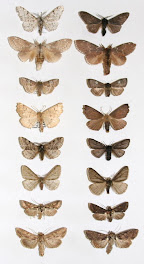Added Even Later: Honesty compells me to point out that Tara catches afarensis having a "Homer Simpson" moment. DOH!
Everyone is familiar, or should be, with the story of Napoleon's unfortunate invasion of Russia. Long story short, Napoleon marched into Russia with an army of approximately 500,000 soldiers. Winter came, Napoleon crawled out of Russia with a few thousand soldiers.
An interesting study in the Journal of Infectious Diseases sets out to examine the story from a novel perspective. In 2001 construction workers unearthed a mass grave containing 2,000-3,000 corpses:
Not content with stopping there, the researchers examined the pulp in the teeth cavity (from 72 teeth representing 35 soldiers) and were able to extract DNA from the pulp. Turns out some of the DNA belonged to B. quintana:
Construction work in 2001 unearthed one such grave, containing between 2,000 and 3,000 corpses. Didier Raoult, MD, PhD, from the Université de la Méditerranée in Marseille, France, and colleagues identified body segments of five lice in a forensic excavation of two kilograms of earth containing fragments of bone and remnants of clothing. Three of the lice carried DNA from Bartonella quintana, which causes the disease commonly known as trench fever, which afflicted many soldiers in World War I.
In all, 29 percent of the soldiers tested had evidence of either R. prowazkii or B. quintana infection...
It should be stressed that this represents what happened to those fleeing Russia, not what caused Napoleon's defeat.
One of the interesting sidenotes is that the authors of the study indicate that searching for DNA of infectious agents in the dental pulp of teeth will become an importatn tool in investigating the history of infectious diseases. I will also be the first to admit that I have no idea how the DNA got into the pulp cavity in the first place...I guess I have some research to do.








